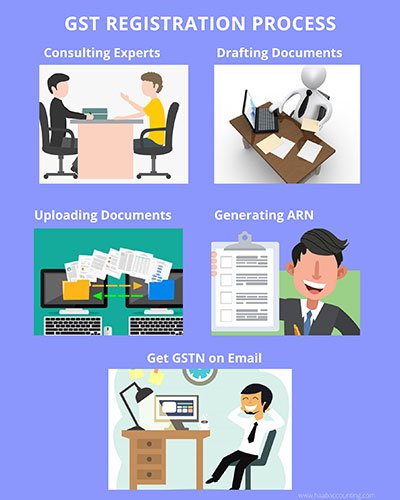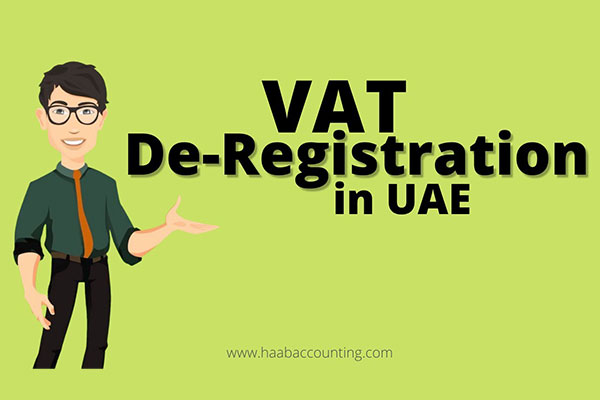What is GST Registration
Goods and Services Tax (GST) is a tax reform which indeed eliminates India’s major indirect taxes like Excise, Service Tax, and VAT. Furthermore as per the changes in the 32nd council meeting ,the businesses whose turnover exceeds Rs 40 lakhs (Rs 10 lakhs for North Eastern States and hill states) is required to register under the Act. So this process of registration is called GST registration. GST registration can be easily done online by simply visiting GST portal. But some areas are difficult to understand by many of the tax payers. So it’s advisable to consult a Tax Expert for GST Registration in the initial stage. Also this blog intend for enlightening readers about the GST Registration process and persons who requires to take registration and other provisions related to registration.
Who Should Register for GST?
The term ‘person’ means a person who carries on any business at any place in India and who is registered or required to be registered under the GST Act. So any person who is engaging in economic activity including trade and commerce is treated as taxable person. ‘Person’ here includes, such as:
- individuals,
- HUF,
- company,
- firm,
- LLP,
- an AOP/ BOI,
- any corporation or Government company,
- body corporate incorporated under laws of foreign country,
- co-operative society,
- local authority,
- government,
- trust,
- artificial juridical person.
If the organization carries on business without registering under GST, not only it will be an offense under GST but also heavy penalties will apply. Turnover Limit for GST Registration as mentioned below:
Normal Taxpayer
Goods 40 Lakhs
Services 20 Lakhs
Special states (North-Eastern States J&K, Himachal Pradesh and Uttarakhand)
Goods 20 Lakhs
Services 10 Lakhs
Below we clearly mentioned the following types of taxable persons who have to do GST registration:
1. Casual taxable person
Casual Taxable person is a person who occasionally supplies goods and/or services in a territory where GST is applicable but he does not have a fixed place of business. This category also applies to taxpayers operating a business in India. Taxpayers registering under the normal scheme do not requires a deposit and are also provides with unlimited validity date.
2. Non-Resident taxable person
A non-resident taxable person under GST is any person or business or not-for-profit who occasionally undertakes transactions involving the supply of goods or services or both, whether as principal or agent or in any other capacity, but who has no fixed place of business or residence in India. Hence, any foreign person or foreign business or organisation supplying goods or services to India would be a non-resident taxable person – requiring compliance with all GST regulations in India.
3. Agents of a supplier & Input service distributor
Input Service Distributor means a supplier of goods or services which receives tax invoices for the receipt of input services and issues a prescribed document for the purposes of distributing the credit of central tax, State tax, integrated tax or Union territory tax paid on the said services to a supplier of taxable goods or services.
4. Those paying tax under the reverse charge mechanism
Normally, the supplier of goods or services pays the tax on supply. So in the case of Reverse Charge, the receiver becomes liable to pay the tax, i.e. In addition to this, for most goods and/or services, the liability for payment of tax rests with the supplier. However, in some cases, the liability to pay tax (GST) would rest with the recipient of the goods or services, instead of the supplier are known as Reverse charge.
5. Person who supplies via e-commerce
Electronic commerce is the supply of goods or services, including digital products over a digital or electronic network. An electronic commerce operator is any person who owns, operates or manages a digital or electronic facility or platform for electronic commerce. It is mandatory for all electronic commerce operators to obtain GST registration, irrespective of turnover.
6. The One who makes an inter-state taxable supply
The business holder who supplies goods or services from one state to another comes under inter-state supply and they have to register GST registration.
What is GST Registration Process?
GST registration usually takes between 2-6 working days. We hereby clearly mentioning the following steps of GST Registration Process.

Penalty for not registering under GST
According to the GST act, any person who fails to obtain registration or registers late under GST needs to pay penalty of 10% of the tax amount due subject to a minimum of Rs.10,000. The penalty will at 100% of the tax amount due when the offender has deliberately evaded paying taxes.
HAAB Accounting Consultancy is one of the Best GST Consultancy and Virtual Accounting Services providers in Trivandrum, India having well-experienced Accounting professionals and Tax Consultants. Surely, they can advise you on all Accounting Services and Tax related matters as well. Which enables you to take better decisions . Contact our Accounting and GST consultants in Trivandrum, India for more information on GST and virtual accounting services.
Mr. Shabeer S (Senior Consultant -GST)
0091 9037334498
Our Trivandrum Office Address
Office No. 02, TC 31/260, Viswa Lekshmi Tower, Pipe Line Road
Bappuji Junction, Peroorkada, Thiruvananthapuram.
Kerala, India, PIN 695005




